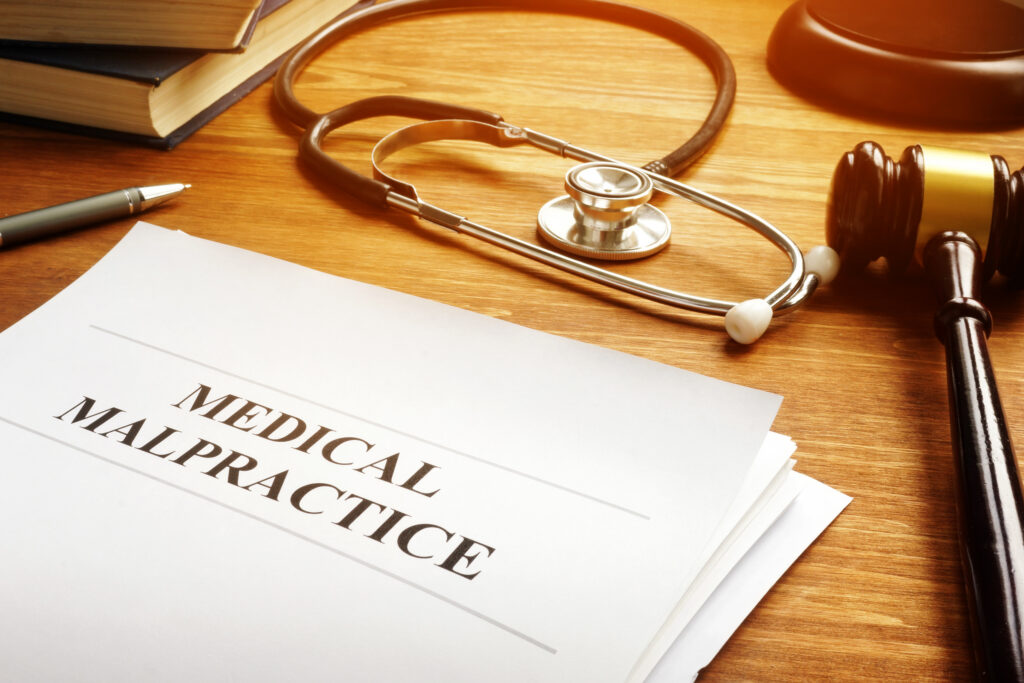Medical malpractice cases in Pennsylvania can be complicated, particularly when hospital policies influence the alleged negligence. Patients often wonder whether a hospital’s failure to adhere to its own guidelines can be used as evidence in a malpractice lawsuit.
Hospital policies are created to ensure patient safety, establish medical protocols, and regulate staff responsibilities. However, when these policies are violated, they can lead to serious injuries and, in many cases, legal action.
This article explores how internal hospital policies impact malpractice claims, the legal framework surrounding hospital liability, and the steps victims can take to seek justice.
What is Medical Malpractice in Pennsylvania?
How Pennsylvania Defines Medical Malpractice
Medical malpractice occurs when a healthcare provider—whether a doctor, nurse, or hospital—fails to meet the standard of care expected in their profession, leading to patient harm.
In Pennsylvania, the law allows injured patients to file lawsuits to seek compensation for damages caused by medical negligence. The standard of care is determined by what a reasonably competent healthcare provider with similar training would do in the same situation.
Who Can Be Held Liable for Medical Malpractice?
Medical malpractice lawsuits are often filed against:
- Doctors who misdiagnose or mistreat a patient
- Nurses who fail to monitor or administer care properly
- Hospitals that do not enforce proper procedures
- Pharmacists who provide incorrect medications
- Medical technicians who make testing errors
A hospital or medical provider may be found negligent if their actions deviate from the standard of care, either through direct mistakes, omission of necessary care, or failure to follow hospital guidelines.
Common Types of Medical Malpractice Cases
Medical malpractice claims arise for various reasons. Some of the most common include:
Surgical Errors
Mistakes in the operating room can have devastating consequences. Errors may include:
- Performing surgery on the wrong site
- Leaving medical instruments inside a patient
- Failing to properly administer anesthesia
Misdiagnosis or Delayed Diagnosis
When a healthcare provider fails to recognize a serious condition in time, a patient’s health may deteriorate, sometimes irreversibly.
Medication Errors
A patient may receive the wrong medication or an incorrect dosage, which can lead to severe complications or even death.
Failure to Monitor Patients
After treatment, doctors and nurses must monitor patients for complications. When warning signs are ignored, it can result in preventable harm.
Hospital Policy Violations
When hospitals fail to follow their own guidelines for infection control, patient supervision, or treatment procedures, serious malpractice claims can arise.
The Role of Hospital Policies in Malpractice Cases
Why Do Hospitals Have Internal Policies?
Hospitals establish policies to:
- Ensure patient safety
- Provide guidance for staff on treatment protocols
- Regulate staff responsibilities
- Prevent medical errors
These policies include detailed protocols for infection control, medication administration, emergency response, surgical safety, and patient monitoring.
How Internal Policies Affect Legal Liability
If a hospital fails to enforce or follow its policies, it may be held liable for institutional negligence. When staff members do not adhere to safety protocols, it can be used as evidence to prove malpractice.
For example, if a hospital’s policy requires patient repositioning every two hours to prevent bedsores, and a nurse fails to do so, leading to severe pressure ulcers, the hospital may be held accountable.
Common Hospital Policy Violations Leading to Malpractice Claims
1. Failure to Follow Infection Control Procedures
If a hospital does not enforce proper sanitation protocols, patients can suffer from avoidable infections.
2. Ignoring Medication Administration Guidelines
Hospitals have strict procedures to ensure patients receive the correct medications at the right dosages. A failure to follow these protocols can result in overdose or harmful drug interactions.
3. Negligence in Patient Supervision and Monitoring
Hospitals must monitor patients carefully, especially after surgery or when administering new treatments. A lack of supervision can lead to missed warning signs and worsening conditions.
Proving Negligence in Pennsylvania Medical Malpractice Cases
How to Establish a Hospital’s Negligence
To prove medical malpractice, a plaintiff must show that:
- The hospital had a duty of care to the patient.
- The hospital violated this duty by failing to follow its own policies or standard medical practices.
- This failure directly caused the patient’s injury.
Using Hospital Guidelines as Evidence
Hospital policies can serve as critical evidence in malpractice lawsuits. Lawyers often request:
Hospital Policy Handbooks
These documents outline standard procedures and help establish whether a hospital deviated from its own guidelines.
Staff Training Records
Attorneys may review training logs to determine whether hospital employees were properly trained to follow protocols.
Medical Records and Patient Charts
These documents detail the care a patient received and can highlight deviations from standard procedures.
The Role of Expert Testimonies in Malpractice Lawsuits
Medical experts are often called upon to analyze whether a hospital followed its policies and whether those policies met the required standard of care.
Experts may testify that:
- A hospital failed to provide the expected level of care.
- The medical staff did not follow proper procedures.
- A policy violation directly caused patient harm.
These expert opinions can be crucial in proving a hospital’s negligence.
Pennsylvania Laws on Hospital Liability
Vicarious Liability for Doctors & Staff
Hospitals can be held responsible for malpractice committed by their employees under vicarious liability. If a hospital-employed physician or nurse makes a medical error, the hospital may be held accountable.
However, hospitals are not always responsible for a doctor’s mistakes. Many physicians work as independent contractors rather than hospital employees. In these cases, the hospital may not be liable unless it can be shown that it exercised control over the doctor’s actions.
Hospital Administration’s Responsibility
Hospital administrators play a key role in ensuring that policies are followed and that patients receive proper care. If administrators fail to provide adequate staffing, maintain medical equipment, and enforce patient safety protocols, the hospital may be held accountable for negligence.
Steps to Take if You Suspect Hospital Malpractice
How to Gather Evidence for a Medical Malpractice Claim
If you believe a hospital’s negligence caused your injury, you should:
- Obtain Medical Records: Request copies of hospital records that detail your treatment.
- Collect Witness Statements: Statements from nurses, staff, or other patients can help prove negligence.
- Request Hospital Policy Documents: If possible, obtain information about the hospital’s procedures related to your case.
Why You Should Contact a Medical Malpractice Attorney
An experienced attorney can:
- Review hospital policies to determine if a violation occurred.
- Work with medical experts to analyze whether negligence took place.
- File a lawsuit within Pennsylvania’s two-year statute of limitations for malpractice claims.
Filing a Complaint with the Pennsylvania Department of Health
In addition to filing a lawsuit, you may also report a hospital’s negligence to the Pennsylvania Department of Health or the Pennsylvania Board of Medicine.
Frequently Asked Questions (FAQs)
Can hospital policies be used as evidence in a malpractice lawsuit?
Yes, hospital policies can serve as key evidence in a malpractice lawsuit. If a hospital fails to follow its own guidelines and a patient is harmed as a result, those policies can help establish negligence. Attorneys often use internal hospital procedures, patient records, and expert testimonies to demonstrate whether a hospital met or violated its own standards of care.
Are hospitals always responsible for a doctor’s mistakes?
Hospitals are not automatically responsible for a doctor’s mistakes. In Pennsylvania, hospitals can be held liable if the doctor is an employee of the hospital. However, if the doctor is an independent contractor, the hospital may not be directly responsible unless it can be proven that the hospital exercised control over the doctor’s actions or was negligent in hiring and supervising them.
What happens if a hospital violates its own policies?
If a hospital violates its own policies and a patient is harmed as a result, it can be held liable for medical malpractice. The failure to follow internal procedures can be used as evidence of negligence in a lawsuit. Courts may view such violations as proof that the hospital did not meet the required standard of care.
How long do I have to file a malpractice lawsuit in Pennsylvania?
Pennsylvania has a two-year statute of limitations for medical malpractice cases. This means that a patient must file a lawsuit within two years from the date they discovered or should have reasonably discovered the injury. There are some exceptions, such as cases involving minors or fraudulent concealment of malpractice, but it is essential to consult an attorney as soon as possible to ensure compliance with legal deadlines.
What should I do if I suspect hospital negligence?
If you suspect hospital negligence, the first step is to obtain copies of your medical records and any relevant hospital policies. Gathering witness statements from nurses, staff, or other patients can also be helpful. You should consult an experienced medical malpractice attorney to assess the situation, determine whether hospital negligence occurred, and decide on the best course of legal action.
Contact Purchase, George & Murphey, P.C. Today
Hospital policies play a crucial role in medical malpractice cases. When hospitals fail to enforce their own guidelines or provide proper supervision, they may be held legally responsible for resulting patient harm.
If you or a loved one suffered due to medical malpractice in Pennsylvania, you have the right to seek compensation. Speaking with an experienced attorney can help you understand your options and build a strong case.
If you believe you are a victim of medical malpractice, don’t wait. Contact Purchase, George & Murphey, P.C. today to discuss your case.













